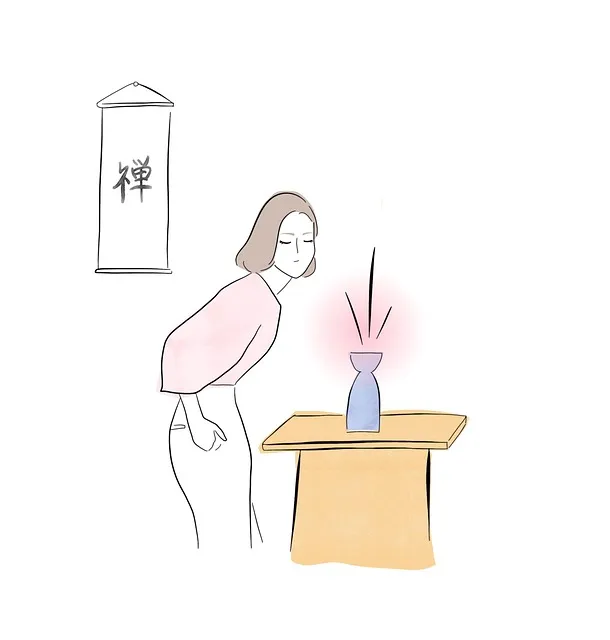Healthcare provider burnout is a growing concern impacted by high-stress work environments. Organizations like Kaiser Permanente Norcal address this through various strategies, including emotional support via their mental health phone number in Lone Tree and initiatives fostering open discussions about mental wellness. Burnout prevention focuses on empathy-building, stress management techniques, self-compassion, and building strong professional connections. Confidential counseling services, mindfulness programs, and regular check-ins contribute to a supportive work culture that enhances well-being, patient care, and organizational performance, as demonstrated by Kaiser Permanente's successful model.
Healthcare provider burnout is a growing concern, impacting both individual well-being and patient care. This article explores comprehensive strategies to prevent burnout among healthcare professionals, focusing on the critical aspects of stress management, work-life balance, mental health support, and team resilience. We delve into practical solutions, drawing insights from organizations like Kaiser Permanente’s mental health resources, as seen in their Norcal and Lone Tree initiatives. By addressing these areas, healthcare systems can foster a more sustainable and supportive environment for their providers.
- Understanding Burnout Among Healthcare Providers
- Strategies for Stress Management and Work-Life Balance
- The Role of Mental Health Support and Access to Resources
- Building Resilient Teams and Fostering a Supportive Culture
Understanding Burnout Among Healthcare Providers

Healthcare provider burnout is a growing concern within the industry, impacting not just individual well-being but also patient care and organizational performance. It manifests as a state of emotional exhaustion, depersonalization, and reduced personal accomplishment, often stemming from prolonged exposure to high-stress work environments. At Kaiser Permanente Norcal, for instance, the mental health phone number in Lone Tree serves as a crucial resource for healthcare providers seeking support. Understanding burnout requires recognizing its subtle signs and symptoms, which can include increased irritability, cynicism, decreased job satisfaction, and a sense of detachment from patients.
Burnout prevention strategies are essential to foster resilience among healthcare providers. One effective approach is implementing empathy-building strategies that enhance interpersonal connections and improve patient-provider relationships. These strategies promote a sense of belonging and support, reducing feelings of isolation. Additionally, integrating emotional healing processes into workplace culture can facilitate open discussions about stress management and mental wellness. This may include encouraging participation in mental wellness podcast series production, providing access to counseling services, or offering mindfulness programs to enhance coping mechanisms and overall emotional resilience.
Strategies for Stress Management and Work-Life Balance

Maintaining a healthy work-life balance is crucial for healthcare providers to prevent burnout. Incorporating stress management techniques like mindfulness meditation, yoga, and deep breathing exercises can help reduce on-the-job stress and promote resilience. Organizations such as Kaiser Permanente Norcal offer valuable resources, including their mental health phone number, to support provider well-being.
Additionally, cultivating compassion towards oneself and colleagues fosters a supportive environment. Practices like Compassion Cultivation Training (CCT) can enhance emotional regulation and reduce the negative impact of stressful events. Building strong professional connections and engaging in meaningful social activities outside of work contribute to a healthy lifestyle, bolstering confidence and resilience against burnout.
The Role of Mental Health Support and Access to Resources

Mental health support plays a pivotal role in preventing healthcare provider burnout. Organizations like Kaiser Permanente Norcal, with their dedicated mental health phone lines, offer valuable resources for professionals to access confidential counseling and support services. These services cater to the unique challenges faced by healthcare workers, promoting resilience and well-being through evidence-based practices such as Mind Over Matter principles and Inner Strength Development. By fostering an environment where seeking help is normalized, these initiatives contribute significantly to burnout prevention.
Moreover, providing easy access to resources like counseling, peer support groups, and risk assessment tools for mental health professionals is essential. The Kaiser Permanente Lone Tree model highlights the importance of proactive measures in identifying and addressing mental health concerns early. This includes regular check-ins, training sessions on self-care, and comprehensive risk assessments tailored to the high-stress nature of healthcare work. Such interventions not only support individual providers but also enhance the overall quality of patient care within healthcare organizations.
Building Resilient Teams and Fostering a Supportive Culture

Building resilient teams is a powerful strategy to prevent healthcare provider burnout. By fostering a supportive culture that encourages open communication and collaboration, organizations like Kaiser Permanente Norcal can enhance team dynamics. This involves regular training sessions focused on emotional intelligence, conflict resolution, and stress management techniques. Creating safe spaces for providers to share their experiences, challenges, and concerns without fear of judgment is essential. Additionally, implementing mentorship programs where experienced professionals guide and support newcomers can significantly boost resilience.
A supportive culture goes beyond individual well-being; it extends to the organization’s approach to mental health. This includes promoting Mental Health Policy Analysis and Advocacy, ensuring access to resources like the Kaiser Permanente mental health phone number, and reducing the stigma associated with mental illness through Community Outreach Program Implementation. Such initiatives not only support providers’ mental health but also contribute to a positive work environment where everyone feels valued and empowered.
Burnout among healthcare providers is a growing concern, but with the right strategies, it can be mitigated. By understanding burnout’s impact, implementing stress management techniques, prioritizing work-life balance, and ensuring access to mental health resources like those offered by Kaiser Permanente in Norcal’s Lone Tree region, we can build resilient teams and foster supportive cultures. These measures are essential steps towards creating a healthier, more sustainable healthcare environment for both providers and patients alike.






